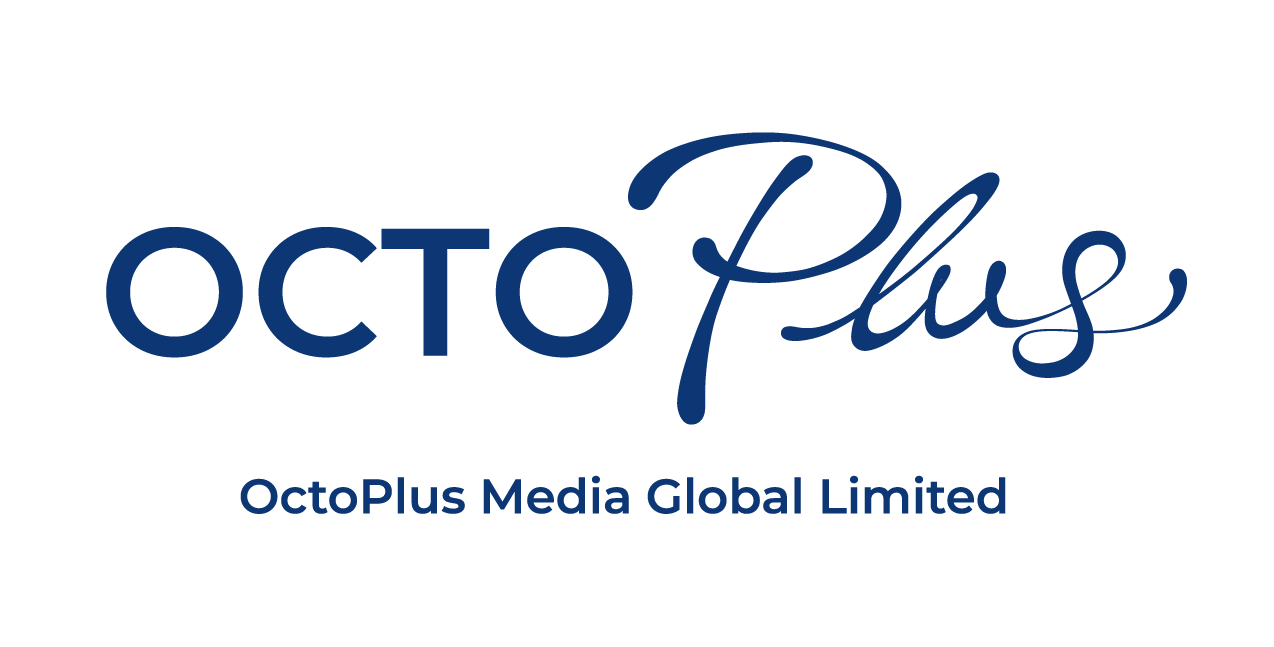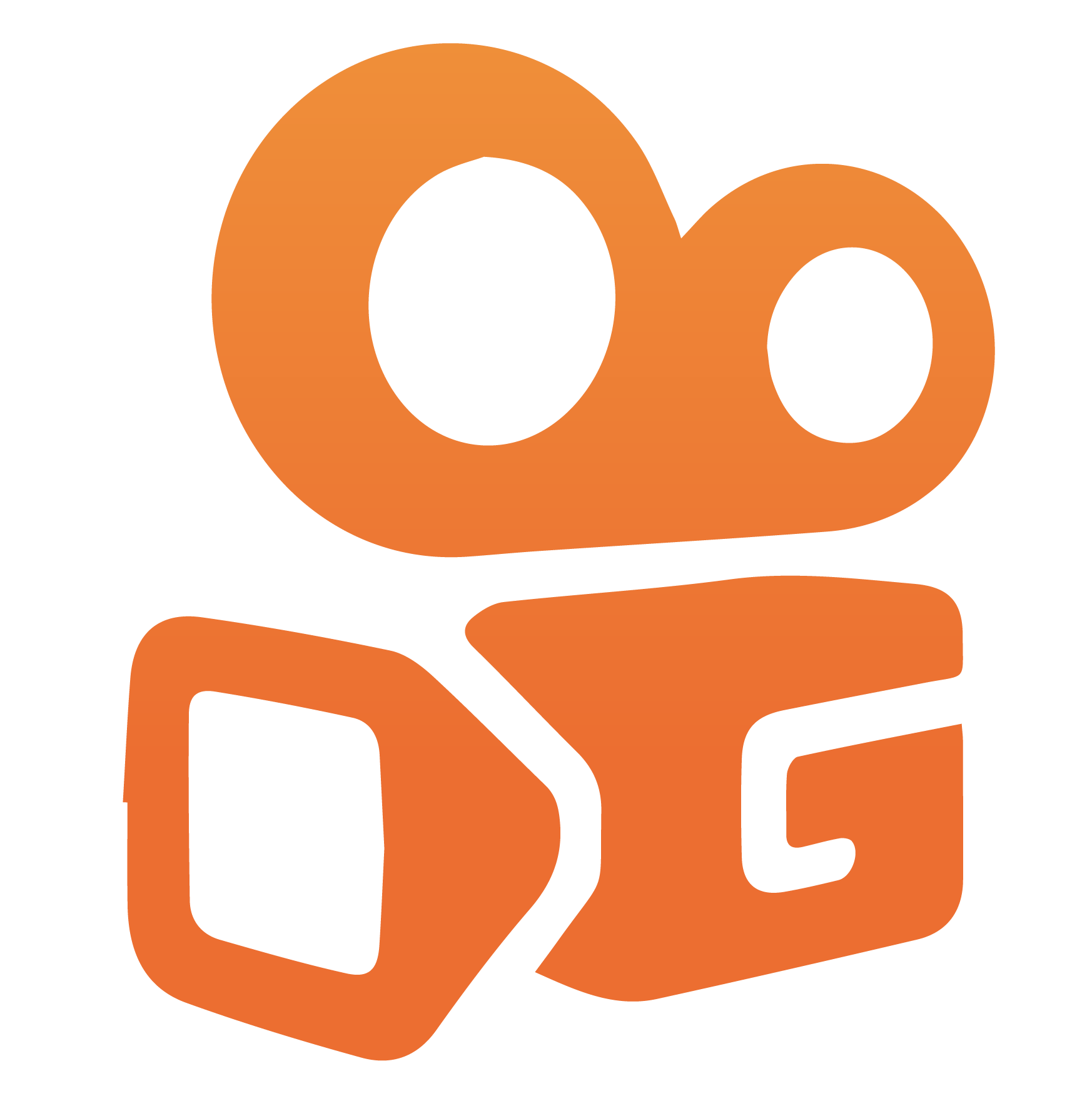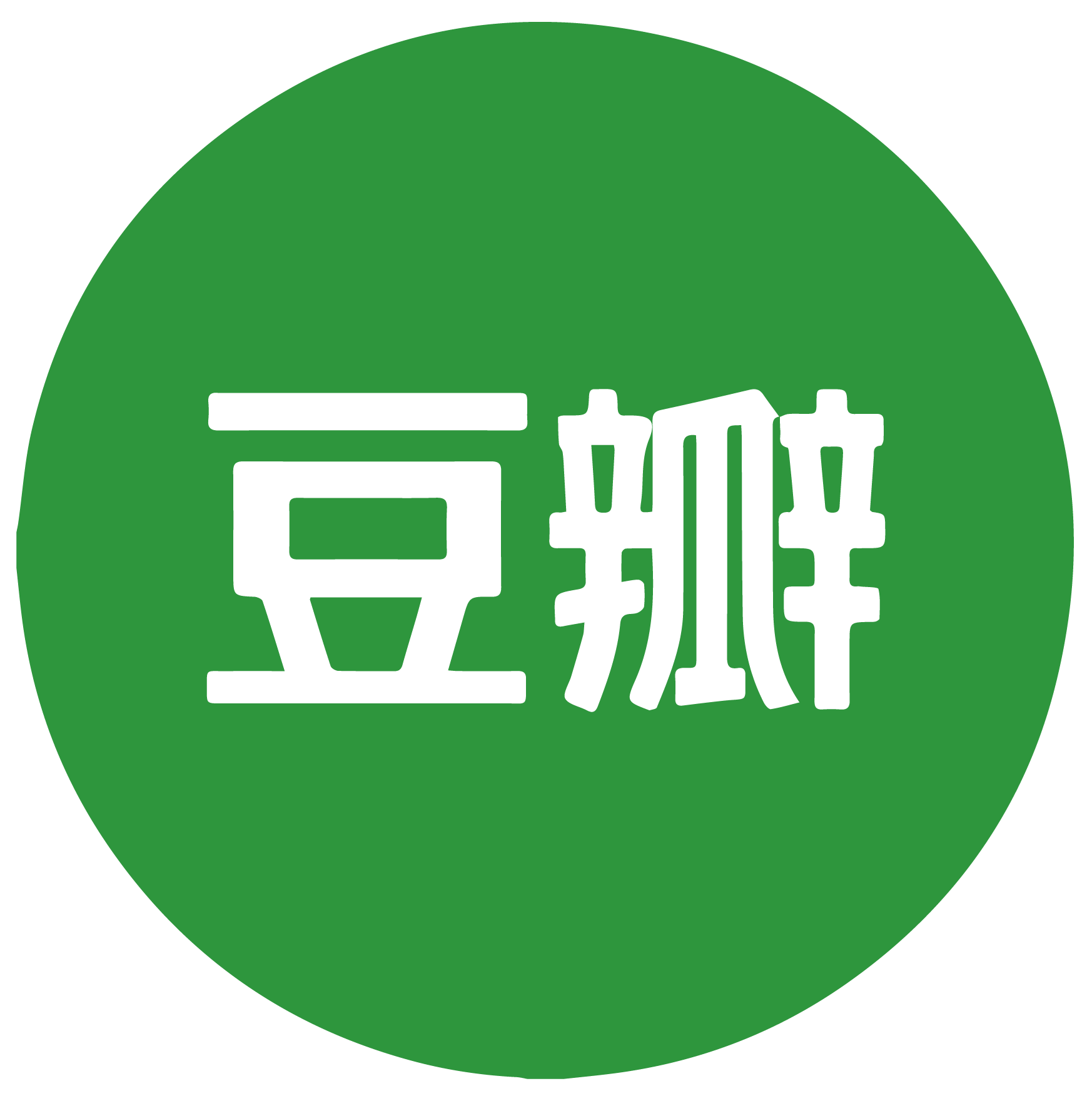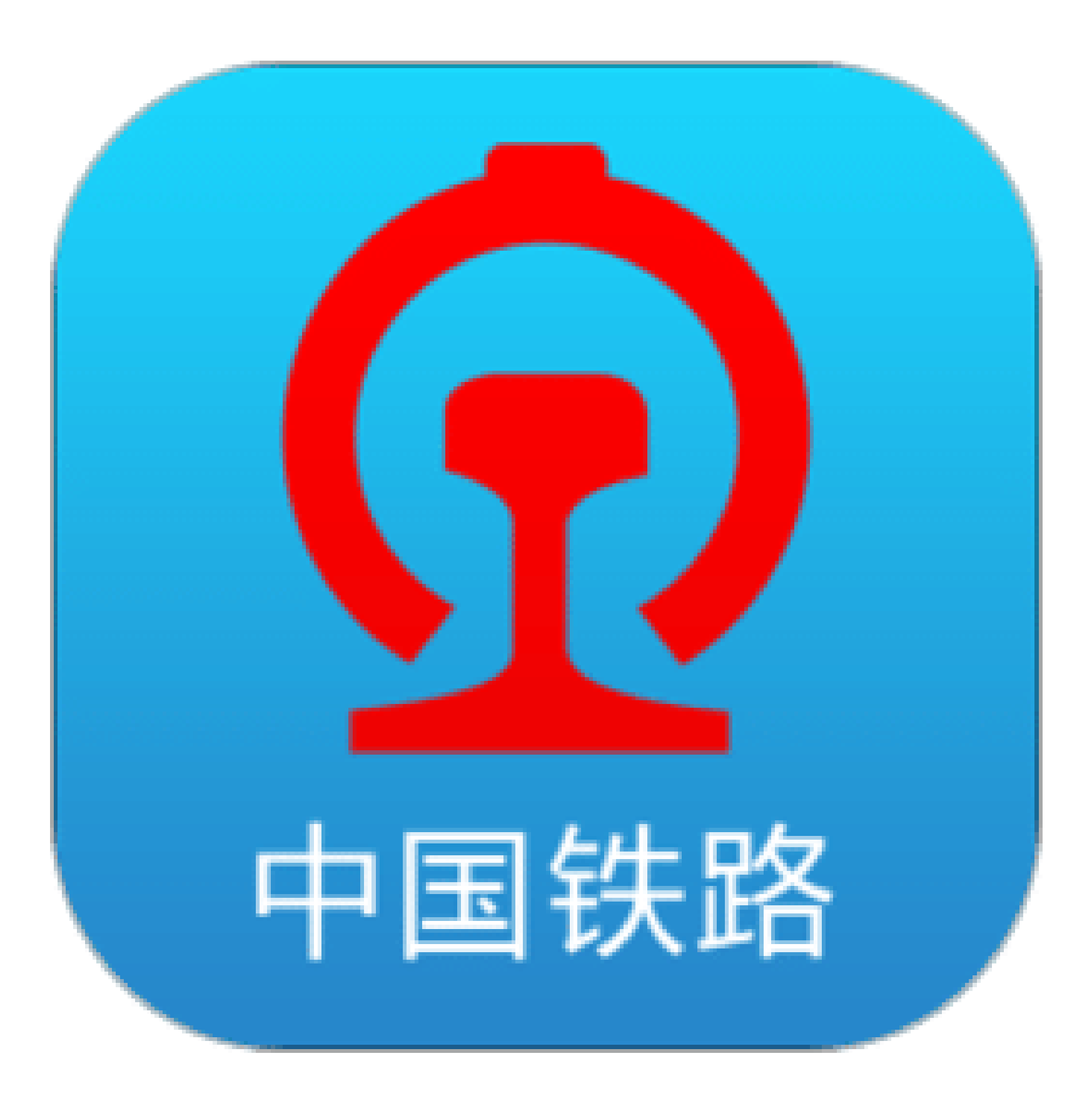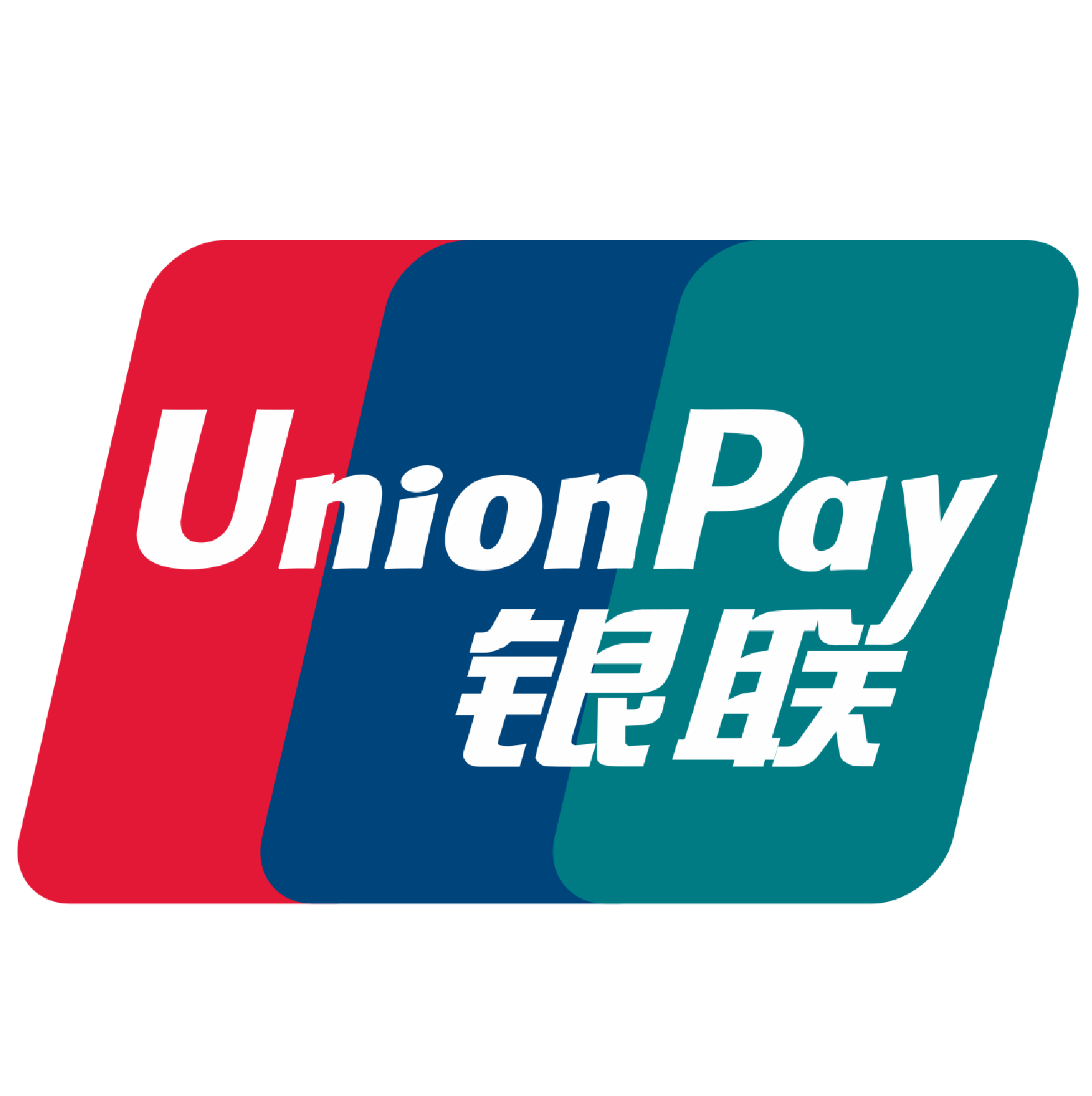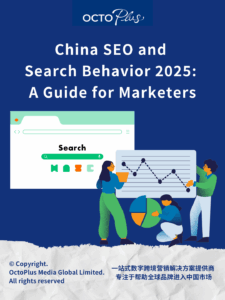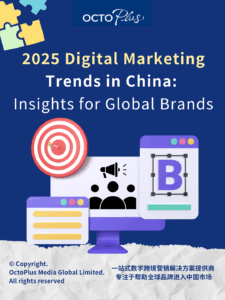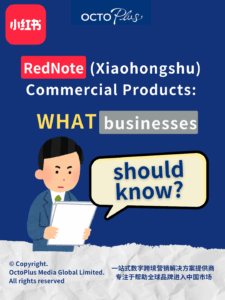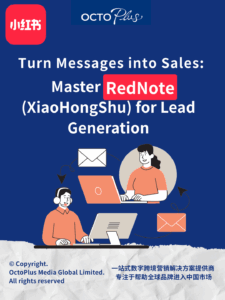China Marketing Insights Monthly Newsletter [September 2021]
![China Marketing Insights Monthly Newsletter [September 2021]](https://cdn.octoplusmedia.com/wp-content/uploads/2022/09/Title_Sep-2021-1024x524.png)


Hello,
Welcome to our September Newsletter.
There is more clarity in some of the tech crackdowns that started in July. First, we start our issue with the latest law to be finalized – PIPL. The PIPL is the first comprehensive national-level personal information protection law in China, although it has been in the making for a long time, it was finalized on August 20th & takes effect on November 1st.
Continuing with our theme of laws & regulations, we highlight the latest update to advertising laws, there has been some major additions, including advertising to minors, KOLs & celebrities to be held responsible for ads, etc.
We have two reports & insights in our reports section this month, first is the 48th report on the internet development in China. We provide high-level data, some industry trends & access to the full reports in Chinese, if interested. Next, we have the latest Douyin conversion rate insights, published by Kantar Consumer Index.
We wrap up this newsletter with App of the month – Jessica’s Secret – a price comparison APP for tourist shopping.
From all of us at OctoPlus Media – Stay safe & take care.
Sincerely,
Mia C. Chen
CEO & Co-Founder of OctoPlus Media

INSIGHTS REPORT - CHINA INTERNET REPORT 2021
The China Internet Network Information Center (CNNIC) released the 48th Statistical Report on Internet Development in China on Aug 27. As of June 2021, the number of China’s internet users surpassed 1 billion, up by 21.75 million since December 2020, and the internet availability rate reached 71.6% in the country. With over one billion internet users, China has the world’s largest digital society.
China internet sector has entered a new phase of development with both push & pull factors driving further innovation in internet companies to stay ahead. Tightening regulation, increasingly saturated domestic market with changing demographics and geopolitical tensions are influencing companies to look outside their established markets, pivot business models, focus on new customer segments, and adapt to shifting dynamics to remain competitive.
Here are some key highlights from the report:
Users:
- 71.6% – China’s population who are internet users
- 297 million – Rural internet users
- 59.2% – Rural Internet availability
- 94% – Fiber broadband subscribers
- 888 million – Short form video users
- 638 million – Live streaming users
Services:
- 872 million – used online payment methods
- 469 million – ordered food online
- 381 million – remote office workers
- 239 million – online medical services users
Broader trends to look for :
Regulatory – China’s tech industry has been hit by sweeping regulatory crackdowns since the second half of 2020. This is mainly driven by Beijing’s desire to better align the country’s technology development with national strategic goals and public interests.
Read our other blog series on regulatory announcement & their impact – Part 1, Part 2.
The tightening has focused on many areas —
Antitrust – Since late 2020, China has unleashed a slew of regulatory actions targeting the monopolistic behaviours of the country’s biggest internet companies — a new antitrust guidelines were issued, investigations are still ongoing, with repercussions still to be felt.
Most notable of these include Alibaba fine, Meituan probe, data security at Didi.
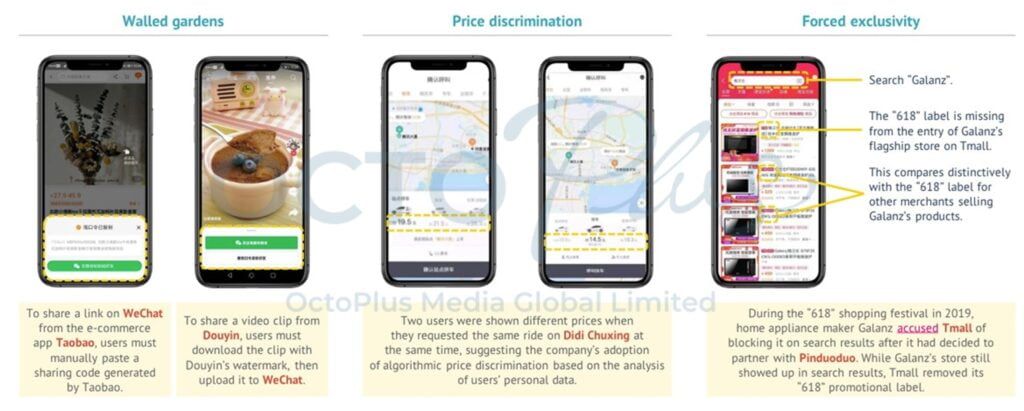
Finance – the government rolled out a series of measures to rein in the country’s fast-growing fintech sector. While Ant Group has borne the brunt since the abrupt termination of its IPO in late 2020, the actions to reshape China’s fintech landscape are ongoing and spell far-reaching implications for other internet giants. The most recent news is a forced split of Ant Group to separate the insurance business from the main Alipay payment business unit.
Data privacy – China has finalized the most extensive review of its data privacy laws & has implemented the Personal Information Protection Law (PIPL) – this is considered one of the strictest in the world currently. We deep dive into this in our latest regulatory series here.
Shifting Demographics – As the demography changes in China, new niche segments are being crafted & competition is increasing to win over the users.
Three notable segments to look out for –
Silver economy – 11% of internet users are aged over 60, up from just 4% four years back. There is still a lot of room to grow as the penetration rate is only 40% compared to 70% overall. Considering the aging population, China’s Ministry of Industry and Information Technology (MIIT) published guidelines in Apr 2021 for web pages and mobile apps to carry out “elderly friendliness modifications”. Some key changes in-app/website include senior mode or edition with larger font size, a simplified interface, fewer ads especially pop-ups, one-click order, voice commands, screen reader, tailored content for elderly, promotion of elderly KOLs, etc.
Sheconomy – As the level of education increases, together with high employment participation has helped create greater financial autonomy for independent & confident female consumers. Key trends include – strong demand for high-value cosmetics; apparels that focus on style, comfort, brand; healthier food, alcohol; fitness equipment, pet products, etc.
Sinking markets – Tier 3&lower cities & rural areas internet users rose to nearly 60% from just 50% in 2 years. While social & messaging and videos are close to full saturation with only marginal growth, sectors including financial services, work productivity, ride-hailing, e-commerce, and daily services are still undergoing relatively rapid expansion.
Private domain traffic – E-commerce brands have relied on paid ads offered by platforms to acquire and retarget customers. Slowing growth has pushed up the cost of customer acquisition. Brands are now paying more attention to private-domain traffic as they look to build direct communication channels with customers and engage them directly to drive repeat repurchases. Read more about it in our deep dive articles – Article 1 & Article 2 & Article 3.
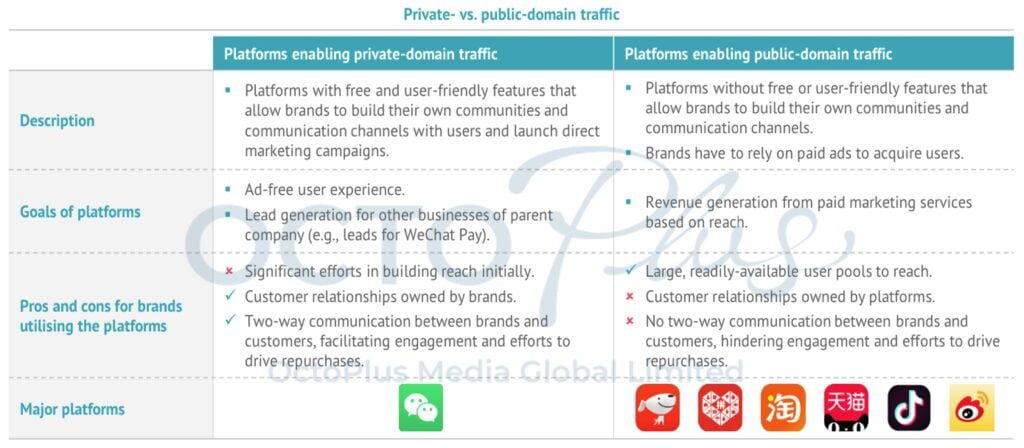
Private-domain traffic has been mostly used in e-commerce by brands to build and own customer relationships, drive repeat purchases, and broaden their reach with social commerce tactics. WeChat has been the dominant source of private-domain traffic, thanks to its large user base, as well as its comprehensive ecosystem encompassing messaging, social, e-commerce, and payment functions
SCMP also has a very detailed report on the China internet report.
If you would like to understand how these impact your marketing in China, talk to us.
CHINA REGULATION - PERSONAL INFORMATION PROTECTION LAW (PIPL)
This is part of ongoing series of articles covering the recent changes in policy & regulation that will impact how companies do business in China. Last month we covered Anti-monopoly, this month we will be talking about PIPL – Personal Information Protection Law.
On Aug 20, the Standing Committee of the National People’s Congress passed China’s first comprehensive data privacy law, the “Personal Information Protection Law”, which will come into effect on Nov 1, 2021. The PIPL is the first comprehensive national-level personal information protection law in China. Together with the Cybersecurity Law, and the Data Security Law, PIPL forms the three pillars of China’s comprehensive data protection legal regime.
Dubbed the strictest personal privacy law in the world, PIPL is influenced by Europe’s GDPR. The PIPL is a framework law that is not intended to provide granular detail on the majority of the policy matters it covers, but rather sets out broad principles, objectives, mandates, and responsibilities. The law’s focus is on protecting individuals, society, and national security from harms stemming from abuse and mishandling of personal information—targeting both the private sector and government functions.
The final text of the PIPL is the culmination of years of legislative work and policy debate in China. Although it retains most of the major features of the first NPC draft, published last year, the law underwent significant revisions.
Some of the key areas of interest for marketers include –
Cross-Border Data Transfer
The PIPL will have an extraterritorial effect and will apply to the following processing activities:
processing, within China, of personal information of natural persons; and
processing, outside of China, of personal information of natural persons who are in China, if such processing is:
- for the purpose of providing products or services to natural persons in China;
- to analyze/evaluate the behavior of natural persons in China; or
- other circumstances prescribed by laws and administrative regulations.
If a company outside of China conducts processing activities as described above, the PIPL requires that it set up a special institution or designate a representative in China for handling personal information protection matters, and report the name and contact details of such institution or representative to the Chinese authorities.
Sensitive Personal Information
Under the PIPL, sensitive personal information is defined as personal information that may lead to harm to the dignity of natural persons or serious harm to the safety of persons or property if disclosed or unlawfully used. Examples include – biometric characteristics, religious beliefs, specifically designated status, medical health, financial accounts, and individual location tracking.
Now minors’, under age 14, personal data is considered sensitive. This “sensitive” designation means, in addition to the typical privacy law requirement to obtain a parent or guardian’s consent for handling minors’ data, China’s PIPL limits the processing of minors’ data to when “there is a specific purpose and a need to fulfill and under circumstances of strict protection measures”.
Automated Decision-Making
The PIPL defines “automated decision-making” as “the activity of using computer programs to automatically analyze or assess personal behaviours, habits, interests, or hobbies, or financial, health, credit, or other status, and make decisions”. PIPL requires personal information handlers to “not engage in unreasonable differential treatment of individuals in trading conditions” and specifically prohibits price discrimination through automated decision-making. In addition, the final law requires opt-out methods to be “convenient.”
Legal Liability
The PIPL imposes significant penalties for serious violations, including rectification orders, confiscation of illegal gains, business suspension, revocation of business licenses, and, most notably, fines of up to CNY 50 million or 5% of turnover in the previous year.
Additionally, the directly responsible person inside such personal information processor and other directly responsible persons can incur personal fines between CNY 10,000 and CNY 100,000, and can be prohibited from holding certain management and director positions for a certain period
Meanwhile, the PIPL implicitly recognizes the potentially heavy compliance burdens for small data handlers who may pose comparatively limited risks to individuals. Article 62 authorizes regulators to “formulate specialized personal information protection rules and standards for small-scale personal information handlers,” but the PIPL does not define “small-scale.”
Complete translation of PIPL is available at Stanford DigiChina Cyber Policy Center.
If you need further information or understand the implications to marketing, reach out to us!
INSIGHTS REPORT - DOUYIN CONVERSION ANALYSIS
Douyin has a high monthly user activity rate, and its advertisements have effectively helped brands reach and convert young families. Compared with online video advertisements and traditional media advertisements, Douyin users themselves have a higher percentage of e-commerce buyers. The conversion rate after contact has increased significantly, and the advantage of the long-term conversion rate is also maintained.
Kantar Consumer Index recently released a report on the conversion rate of short video advertisements on Douyin and invited advertisers including beauty, alcohol, and daily cosmetics to conduct research based on historical placement cases. Starting from consumers, this data measures the impact of different platforms and advertising forms on consumers’ omnichannel buying behaviour, and then comprehensively evaluates media effects.
Typical Douyin Consumer:
Douyin users account for 60% of urban home buyers in China, and their use time exceeds that of online video by 2.4 times. Among the research on liquor categories, Douyin users spend a higher index in the overall liquor category. In addition, Douyin users have a larger proportion of oral care purchase decision-making groups than online video users. In addition, the whitening skincare products purchased by Douyin users are more high-end, which can help brands promote consumption upgrades. The following data is the
Alcohol: Douyin user spending index is 108; online video index is 100
Oral care: Douyin user spending index is 103; online video index is 100
Beauty: Douyin users purchase unit price index is 106; online video index is 100
Douyin Conversion impact:
According to actual case series and research data, the conversion rate of Douyin ads after three touches has increased significantly than online video ads, and after the ads are exposed, the population’s purchase conversion rate in the medium and long-term maintains an advantage. The following is the long-term (12-week) conversion rate index of advertising exposure groups on different platforms (*Comparative control group conversion rate is 100):
Douyin – 160
Toutiao – 150
Xigua – 150
Other online video advertising index is only 120
Compared to standard video advertising, Douyin is effective by 33%
In addition, Douyin ads have the highest conversion effect on teenage families, and the core population is biased towards consumers aged 18-34. Among them, the conversion effect is best for consumers aged 25-34, especially for first- and second-tier cities.
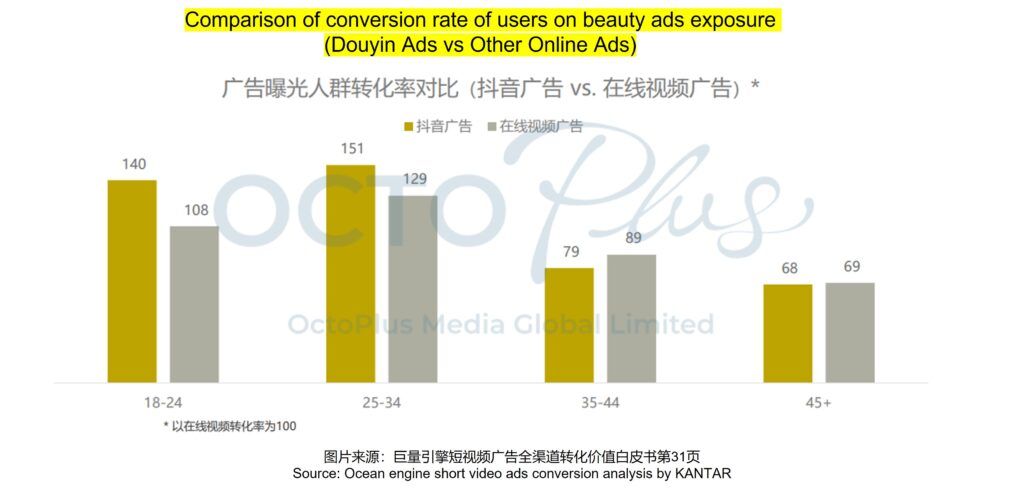
Consumer Insight:
The case shows that during the cross-media launch of the brand, the audience labeling through Douyin is not only more accurate and has better targeting ability, but also effectively helps the brand achieve consumption upgrades and promotes the conversion of competing products. In addition, during the launch of new products, the brand promoted the rejuvenation of the brand by targeting young and high-end buyers through the audience label placement, and more accurately reached the high commercial intentions, and at the same time consolidated the brand’s loyal buyers.
In summary, Douyin advertisement has the highest conversion rate in actual conversion placements. Douyin has a huge audience base and accurate label targeting which can help advertisers communicate with higher-end e-commerce buyers and increase long-term conversion rates.
If you need specific strategies for Douyin advertising and help with campaigns, contact us!

2021 UPDATE TO ADVERTISING LAW
Chinese talk show host/actor/comedian Li Dan was fined 8.7 billion for improper use of words. Li Dan wrote in the ad copy: “A device that allows women to easily lie down and win the workplace.”
Because of this slogan, Li Dan was supervised by Beijing Haidian Market to comment on it as a “typical case of illegal advertising”. The reason is that this advertisement copy is suspected of discriminating against women. According to Article 9(7) of the Advertising Law, advertisements that violate “good social customs” shall not be published. In addition, Article 38 of the Advertising Law stipulates that it is not allowed to recommend or certify unused products or unreceived services. Because Li Dan cannot use feminine products, he cannot advertise for women’s underwear.
Chinese Advertising Law is very strict and no one can cross the red line, and every marketer/advertiser should pay attention to it. Following the revision in 2018, the Advertising Law was revised again in April 2021. This revision was also considered by the advertising circle as “the most stringent revision in history”. The following is a summary of the content:
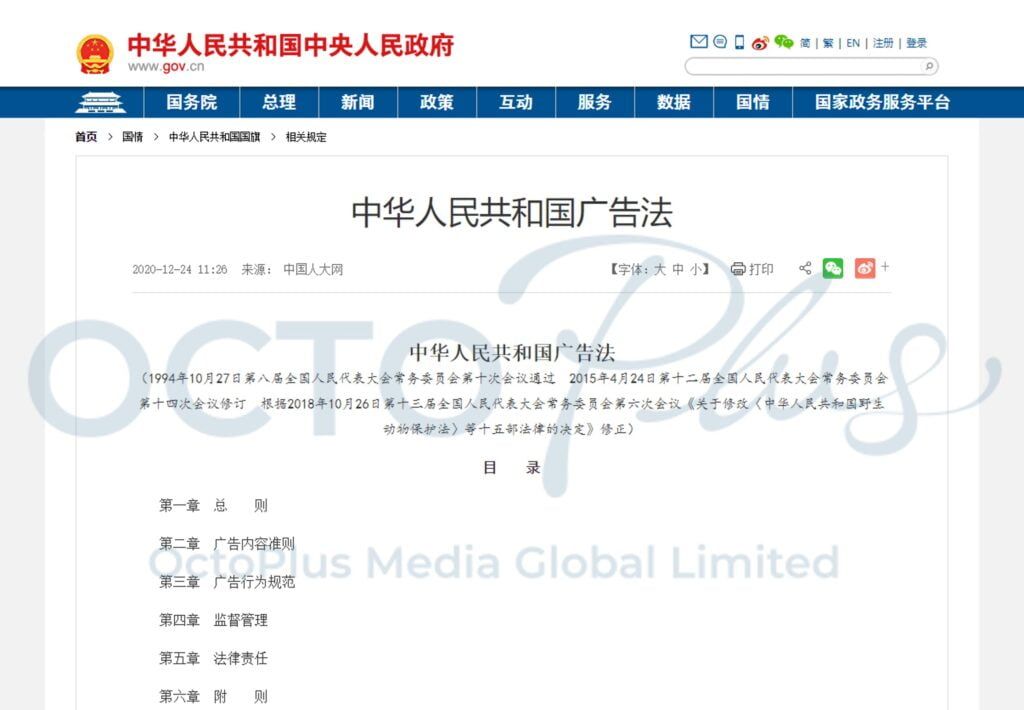
Higher fines & expanded scope – The new advertising law stipulates that the penalty for extreme language is a fine of 200,000 yuan, such as: national, world, highest, best, largest, first, etc. In addition, vocabulary with superstitious or sexual references is not acceptable.
KOL/Spokesperson responsibility – Previously advertising laws & responsibilities only applied to advertisers, advertising operators, and advertisement publishers, under the new law advertising spokesperson will also be held legally responsible for the content of the advertisement. Advertising spokespersons recommending and certifying products and services in advertisements shall be based on facts and comply with the provisions of this law and relevant laws and administrative regulations, and shall not recommend or certify products or services they have not received or used. In addition, minors under the age of 10 are not allowed to become advertising spokespersons.
Protecting Minors – The new advertising law focuses on the protection of minors. For example, it is forbidden to send any form of tobacco advertisements to minors, and online game advertisements that are not conducive to the physical and mental health of minors may not be published in the mass media for minors. In addition, advertisements for goods or services targeted at minors under the age of fourteen must not contain the following content: persuade them to ask parents to purchase the advertised goods or services; it may cause them to imitate unsafe behaviours.
Industry-Specific – Specifial mention for the following industry along with new requirements are included in the law, talk to us to understand more for these industries –
Medical, pharmaceuticals, and medical device
Health food
Alcohol
Education & Training
Real Estate
Finance & Banking
There are many amendments to the advertising law in this revision. Brands should be familiar with the new advertising law before making an advertisement, and marketers should also be familiar with the relevant laws to ensure that customers’ advertisements are legal or remind advertisers to make changes to avoid accidentally breaking the law.
Read about our previous coverage on advertising censorship law.
To be compliant with the latest laws and ensure safe advertising in China, contact us.

APP OF THE MONTH – JESSICA’S SECRET
Jessica’s Secret – Chinese tourist and shopper app for overseas shopping
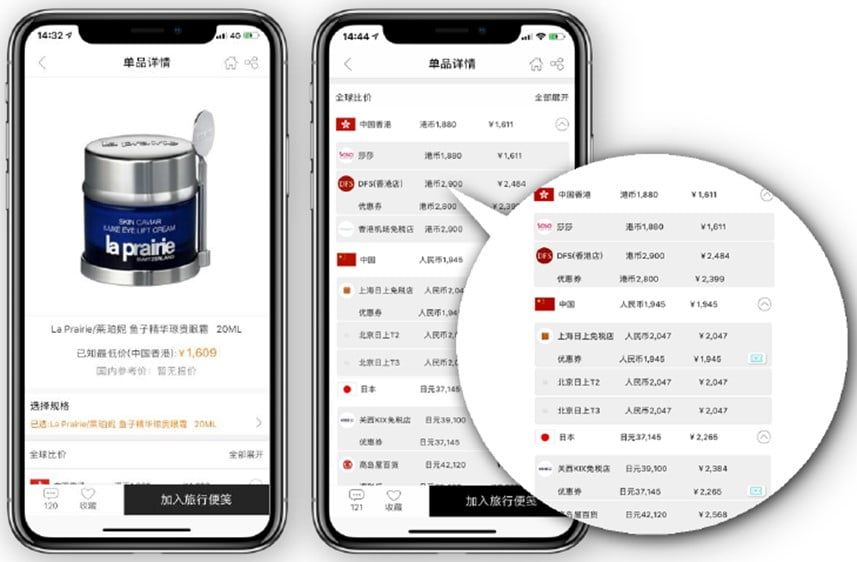
Jessica’s Secret is a price comparison APP for tourism shopping that founded by Jessica’s Group. Jessica’s Secret provides real-time price information of over 900 shopping malls and duty-free shops from 60 countries. The APP act as the bridge between travel retail and Chinese market, total APP user as of 2019 is nearly 1.4 million with 230,000 monthly active users.
From their user portraits data, over 90% of Jessica’s users are high-end mobile devices and top models users. They are high-net-worth users and they shop overseas with strong consumption ability. More than 80% users are the millennials and 86% of the users are female.
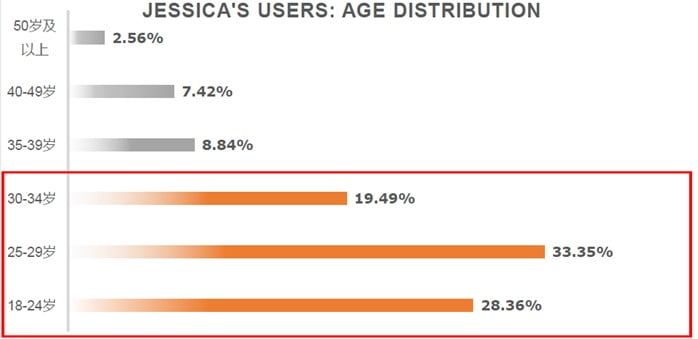
Introducing Jessica’s Secret App features:
- Big Data System: Calculate the highest and lowest price items at tourist destinations.
- Exchange Rates Comparison: Display the real-time exchange rate of the three payments according to the exchange rate platform.
- Scan & Compare: Get the price comparison information by scanning the barcode.
- World’s top brands collaboration: Received a wide range of customer recognition with data authenticity and positive conversion, a lot of top brands advertised on the App consecutively, for example, Shiseido, Estee Lauder, Pernod Richard, La Mer, SK-II, Martell, and etc.
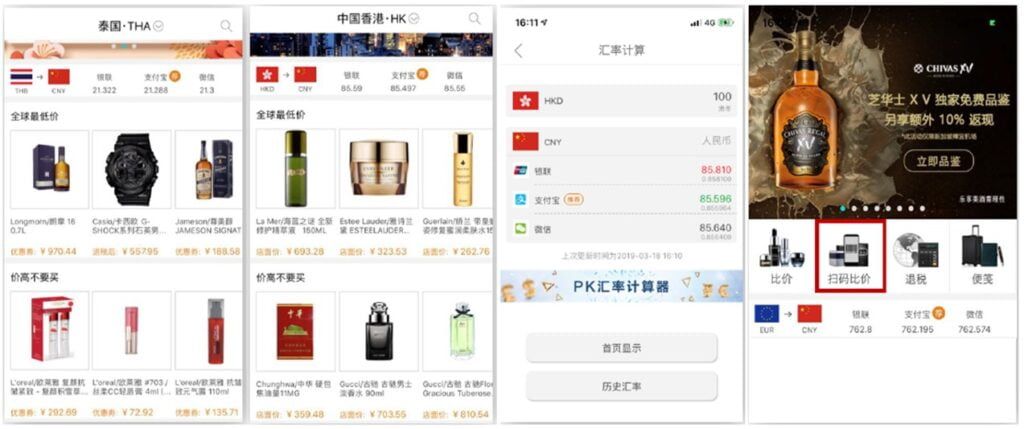
App users can easily get discount/campaign info from the product page, amounts of coupons are given which supports in English and Chinese. Jessica’s Secret APP is now a popular global price comparison tool for travelers and the user base is increasing rapidly yearly.
Tech Services & Marketing for retailers
From a retailer’s perspective, Jessica’s Secret provides different kinds of cooperation models as such:
- Conventional Model (Discount + Commission): Jessica’s Secret gets commission from retailers on discount promotion campaigns.
- New Model 1 (Discount + Cashback): Release some or all commissions from retailers to travelers.
- New Model 2 (The Optimal Discount): May waive part of the commissions if the retailer offers the best deals of all channels to app users.

Jessica Group also provide wide range of IT services like retailer built-in Pre-order website development and operation, providing professional e-commerce marketing plan, interaction design according to the request of travel retailers, market conditions and Chinese tourist preferences. Their tech support also including front and back-end, payment platform (Alipay, WeChat Pay, UnionPay), microsite and, operation and maintenance (7×24 hours).
Moreover, Jessica’s AI tracking showing that they are the world’s only Internet products that dynamically monitors price fluctuation of travel retailers as it 7x24hr monitor the dynamic change for long-term and short-term campaign/promotion prices. Its multifunctional intuitive data results in easy operation and assessment.
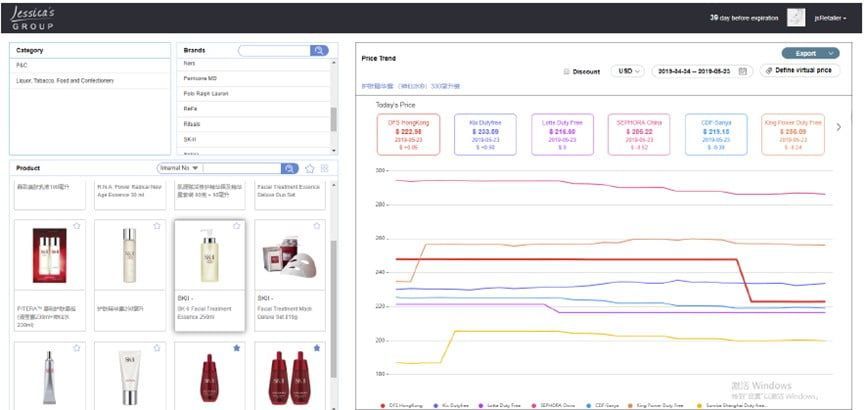
Jessica Group heads up in China travel retail market consulting service and travel retailers’ digital marketing promotion in China like being King Power Thailand’s biggest marketing service provider in China. Last but not least, there are few kinds of advertising format that can be promoted as below:
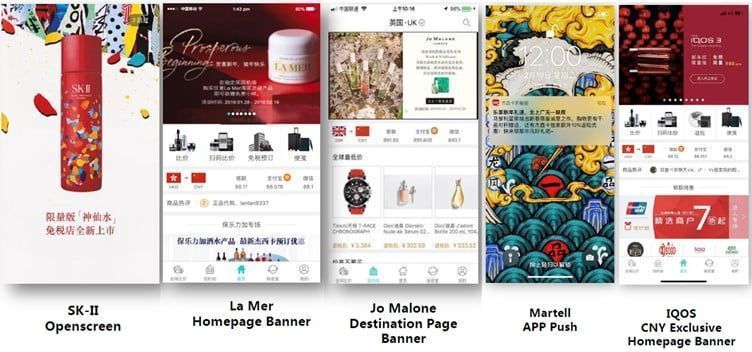
For more detailed information about Jessica’s Secret, please contact us.
-End of the Newsletter-
Feel free to talk to us
It’s a team with one single shared goal, which is our client’s success. Deliver results for your business now.
